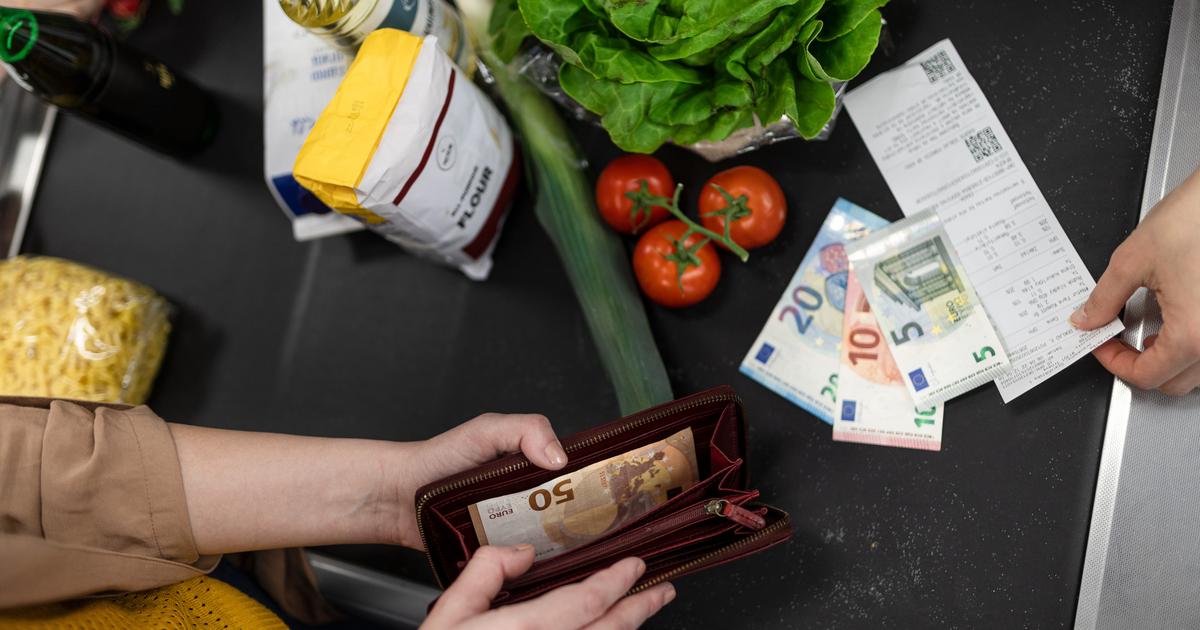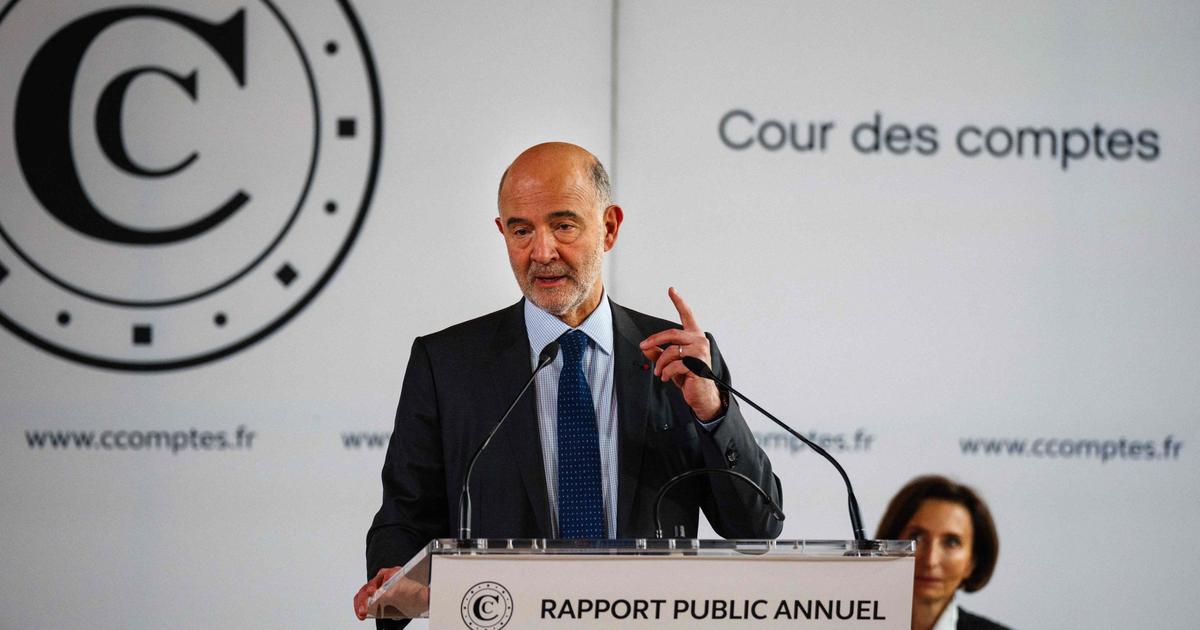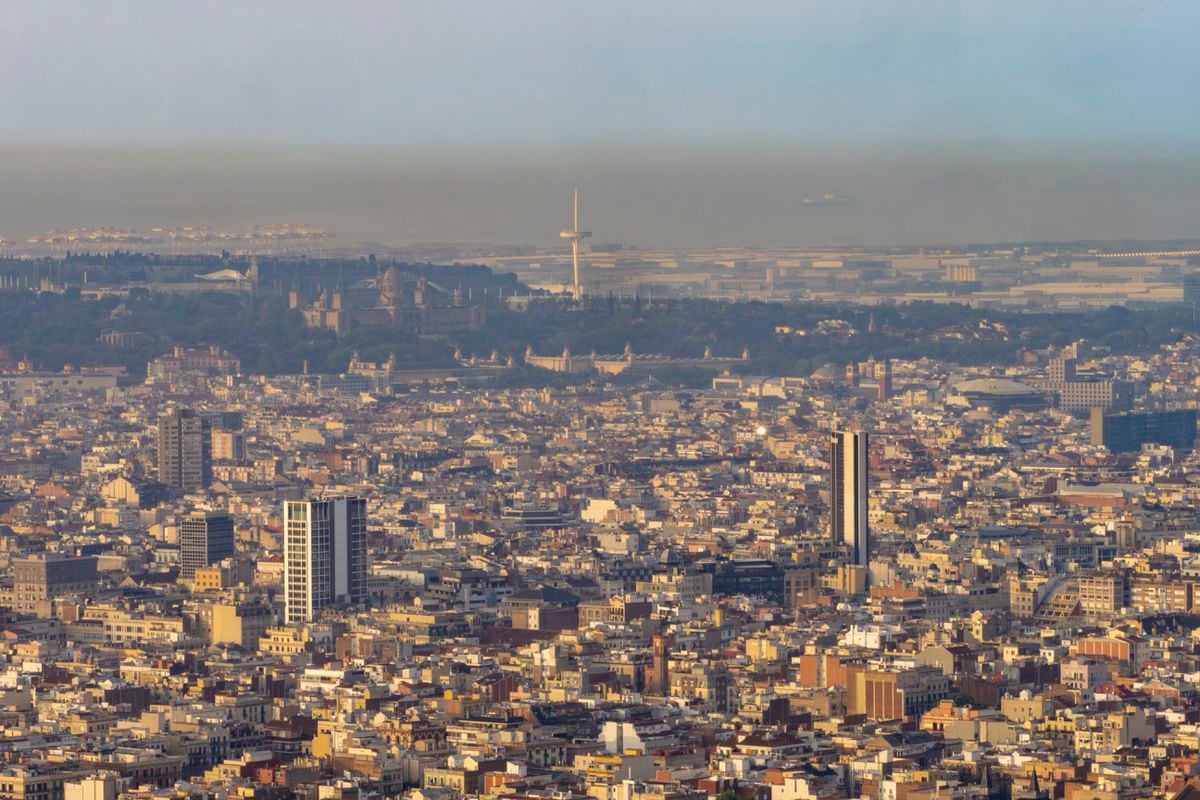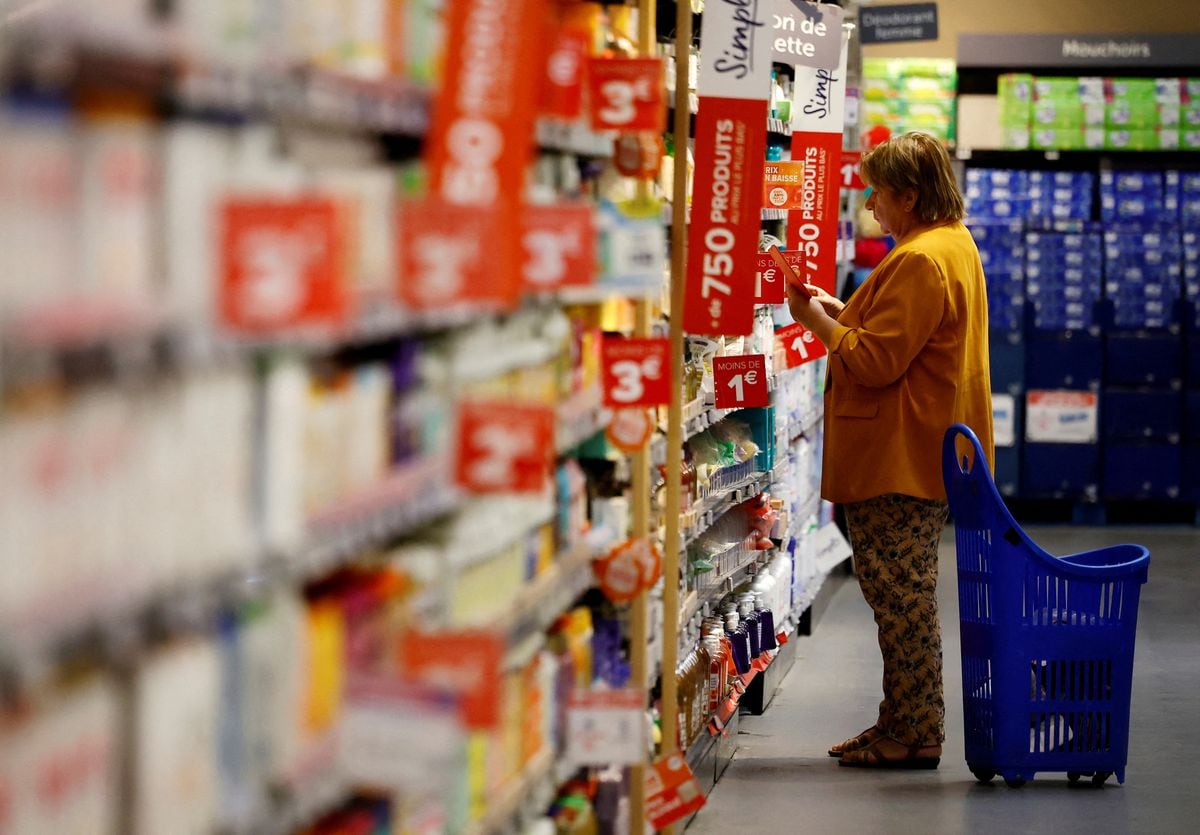Food, energy, fuels... all sectors are affected by the rise in prices which weighs heavily on consumers' wallets.
And food inflation accelerated further in March in France, now reaching 16.2% over one year, against 14.5% at the end of February.
If the government has implemented several measures to protect purchasing power, our European neighbors have also adopted provisions, but with different strategies.
Le Figaro
takes stock of the essential measures of several countries.
A “zero rate” VAT in Portugal
Over the whole of last year, the rise in prices amounts to 7.8% in Portugal, and to 8.7% over one year in February.
According to the government, however, it should be limited to 4% in 2023 or 5.8% according to the country's bank.
Faced with this inflationary crisis, the executive adopted new measures on Friday.
The most significant is the application of a “
zero rate
” VAT on a set of essential food items.
“
We hope that this measure will result in a reduction
” and “
price stability
”, indicated the Minister of Finance Fernando Medina.
At the beginning of the year, the French Minister of the Economy Bruno Le Maire, had estimated that this was not the most effective solution, since the Hexagon has "
already have an average VAT rate which is the lowest of all the countries in the euro zone
”.
In addition to this "
zero rate
" VAT, the government of Marcelo Rebelo de Sousa has decided to increase social aid for the most modest families, by 30 euros per month and 15 euros per child.
More than one million families will benefit from this aid paid in April.
The Head of State also announced an “
extraordinary
” 1% increase in the salaries of some 740,000 civil servants in the country, as well as an increase in the meal bonus for employees.
Read alsoPortugal abolishes VAT on essential food items
Specific aid in Spain
Stuck between Portugal and France, Spain recorded inflation at 6.1% over one year in February.
At the end of last year, the government of Pedro Sanchez unsheathed its anti-inflation plan, notably by eliminating the 4% VAT on basic foodstuffs.
The VAT on consumer products, such as oil or pasta, has also been reduced from 10 to 5%.
The most modest households, earning less than 27,000 euros annually - or 4.2 million households - were also entitled to a check for 200 euros.
Professionals, such as farmers, transporters or fishermen, have received specific aid for fuels.
For sectors very dependent on gas, 450 million euros were paid to them, as well as 500 million euros in credits.
Finally, several already existing aids have been renewed such as tax cuts on energy, aid on public transport, limitation of rent increases and tax on the superprofits of banks and energy groups.
Read alsoSpain: Pedro Sanchez draws up a more targeted anti-inflation plan, VAT on basic necessities removed
Greece supports household purchases
Greece is adopting a different strategy from Western European countries.
In February, it posted inflation at 6.1% over one year, against 8.5% last November.
At the end of 2022, the government of President Ekateríni Sakellaropoúlou introduced a basket of 51 products at the lowest prices, in effect until the end of March.
These are food products, baby food, hygiene products and cleaning reference.
The measure was enshrined in Greek law and recalcitrant actors risked a fine of 5,000 euros.
But while the system ends in two days, the food price index was still up in January, at 15.6% according to Eurostat, for the fifteenth consecutive month of increase.
Since February, the state has also “
supported 10% of household purchases for six months in supermarkets and food shops
,” said Greek Prime Minister Kyriakos Mitosotakis.
Each Greek thus has a monthly ceiling of 220 euros, with an increase of 100 euros for each member of the family, within the limit of 1000 euros.
The beneficiaries are couples with an annual income of up to 24,000 euros, with an additional 5,000 euros granted per child.
The financing of this measure is estimated at 650 million euros and will be taken directly from "
the surplus income of two Greek refineries
“, underlined the Prime Minister.
Kyriakos Mitosotakis also announced on March 17 a 9.4% increase in the minimum wage, to 780 euros per month.
Read alsoGreece: the minimum wage raised to 780 euros per month
An envelope of 200 billion euros in Germany
In Germany, inflation rose to 8.7% year on year in February.
Faced with numerous challenges, the government of Federal President Frank-Walter Steinmer released an envelope of 200 billion euros to limit gas and electricity prices until 2024. Despite this subsidy program, the prices of electricity energy jumped 19.1% in February year on year, after 23.1% in January.
In food, inflation also continued to accelerate, to 21.8% over one year in February.
The Germans have thus organized numerous strikes to demand wage increases.
By the end of 2022, the government had only increased those in key industrial sectors.
Around 4 million employees have thus won an 8.5% salary increase over two years, after multiple work stoppages.
Italy plans 21 billion euros in 2023 in the face of soaring energy prices
In February, Italy recorded inflation at 9.2% over one year.
However, the government has multiplied the aid in force until the end of 2022. Among them, the reduction in employee contributions from 9 to 7%, representing a gain of 25 euros for a salary of 2000 euros.
A bonus of 150 euros was also distributed to Italians earning less than 1500 euros per month.
Note that there is no minimum wage in the country.
The executive also sought to encourage companies to reimburse the invoices of their employees, within the limit of 600 euros, then deducted from the results of the company.
For 2023, the government of the President of the Council of Ministers, Giorgia Meloni, has planned to devote more than 21 billion euros to support households and businesses in the face of soaring energy prices.
However, the Prime Minister ended on January 1, 2023 the reduction of 30 cents in taxes per liter of fuel.
This measure had been introduced by his predecessor Mario Draghi last spring, and had led to strong tensions within the ruling coalition.
Many tax cuts in the UK
Among all European countries, the United Kingdom has one of the highest inflation rates, at 10.4% over one year in February.
The government has decided to freeze energy bills for two years, at 2,500 pounds - 2,843 euros, at the current rate - for a middle-class household.
For businesses, it covers gas and electricity bills for half for six months.
This measure was announced last September by the Ministry of Energy and Business.
It costs 60 billion pounds for six months.
British elected officials have also introduced several tax cuts, in particular by lowering social contributions, the tax on real estate transactions, the maximum rate of income tax and the suspension of certain ecological levies.
If the total cost of the measures has not been disclosed by the government, economists have estimated it at more than 100 billion pounds, and up to 200 billion according to Barclays bank.
Read alsoIn the United Kingdom, first steps to stop strikes
Checks and salary increases in France
As a reminder, the French government has announced multiple aid measures in recent months, in the face of inflation at 6.2% over one year in February.
On purchasing power, Bruno Le Maire recently launched “
an anti-inflation quarter
” in supermarkets.
The effort will thus be "
taken from the margins of distributors
" and will represent "
several hundred million euros
", said the Minister of the Economy.
A food check will also be put in place in the "
very next few months
".
At the end of last year, fuel discounts were introduced, at 30 cents per liter from September 1 to October 31, then at 10 cents from November 1 to December 31, 2022. This system had given way to a fuel allowance of 100 euros for low-income workers, extended until March 31.
Regarding energy prices, the executive has postponed the end of the tariff shield until June 2023. The increase in gas prices is thus limited to 15% since January 1, and also to 15% for electricity since February 1.
As of April 21, 5.8 million households will also receive a new energy voucher.
On the salary side, the Smic was revalued to 11.27 euros gross per hour on January 1, after an increase of 6.6% in 2022. Pensions were also increased by 0,








